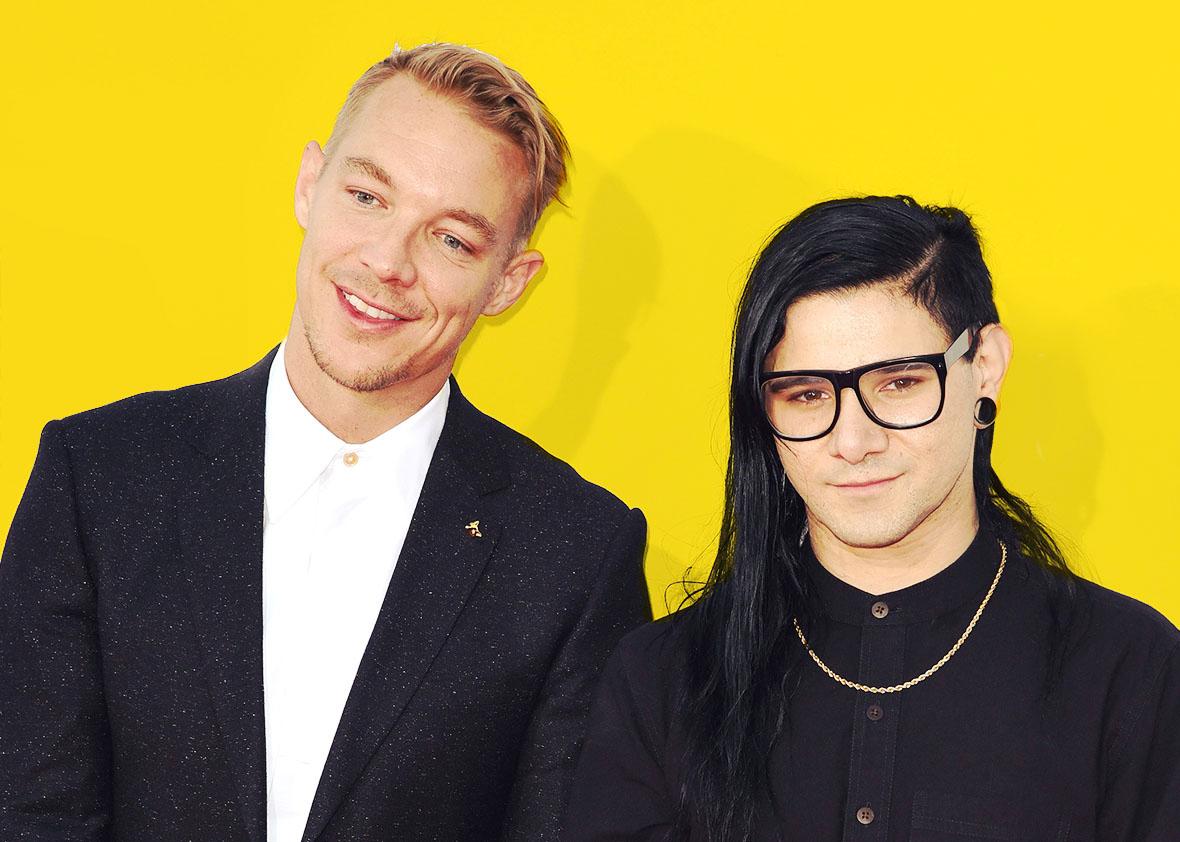Hey gang,
Before we pack it in for the year, Carl, your musings about the producer-forward “Neofuturist Aesthetic” make me want to circle back to something you mentioned in passing in your introductory post: We’re living through a sea change in pop music where figures formerly relegated to the background—producers, writers, even top-liners in a few cases—now have the potential to become just as famous as the pop stars themselves. Songwriter-to-the-stars Sia stepped out from the shadows (well, sorta; she’s still got a paper bag on her head) and is about to release an album’s worth of songs she initially wrote for other people. Diplo and Skrillex, who joined forces as Jack Ü, were considered as instrumental to Bieber’s 2015 reinvention as Bieber was (if not more). Superproducer Max Martin used to be the industry’s unsung secret weapon; now he’s something of a household name. Hell, even Drake’s right-hand-man, producer Noah “40” Shebib, has almost a quarter million Instagram followers. It’s never made much sense to treat pop music like the work of one omniscient auteur, but it’s nice to see some fans developing a more collective appreciation for how their favorite songs come together, and celebrating the talents of some of the more introverted players in the pop game.
I think a lot of this has to do with the mainstream-ization of (so-called) EDM, a world in which the DJ/producer is king. Watching Tame Impala’s sunset set at this year’s Governors Ball in New York, a friend and I discussed why the psychedelic Aussies seem to be the one rock band that even the EDM kids like. My theory: Kevin Parker, the group’s every-dude lead singer, is kind of a frontman/producer hybrid, and his fans worship him not for his charisma (I mean, he doesn’t have much) but because he’s the architect of the band’s signature, spacey sound. Currents, Tame Impala’s great third album, was perhaps more of a triumph of production than songwriting—Parker’s lyrics sometimes err on the side of clunky (“She was holding hands with Trevor/ Not the greatest feeling ever”) but the atmosphere of Currents is so gorgeously weightless that its smaller sins are forgivable. Parker also provided vocals on Mark Ronson’s Uptown Special, another record on which a producer got top billing, even if he smartly deflected to vocalists like Bruno Mars and Mystikal to provide their own distinct dashes of personality. The xx’s mild-mannered in-band DJ/producer, Jamie xx, also struck out on his own this year with the haunting In Colour, whose muted pulsations basically sounds like dance music for shy people. When asked about the recording of “I Know There’s Gonna Be (Good Times),” his collaboration with Young Thug and Popcaan, he gave a shut-in’s answer: “I’m terrible at smoking weed, so I kind of dread working in that world. I was quite happy to be able to do it over the Internet.”
Of course, nearly all the producers I’ve mentioned so far are men. For various systemic reasons, the production world still skews heavily male (though shout-out to the brilliant Holly Herndon, who a few of you have brought up), but most noxiously, women often don’t get recognition even when they do produce their own work. Early in the year, prior to the release of Björk’s candid, shape-shifting record Vulnicura (I think I side more with Julianne than Carl on this one, though I do love the elegiac “Stonemilker”), many publications reported that it was produced by the (male) Venezuelan musician Arca. In reality, he co-produced it with Björk, although people had made a similar mistake before, mistakenly crediting the duo Matmos for the entirety of production on Vespertine. In a memorable Pitchfork interview this January, Björk spoke up about the double standard: “I have nothing against Kanye West. Help me with this—I’m not dissing him—this is about how people talk about him. With the last album he did, he got all the best beatmakers on the planet at the time to make beats for him. A lot of the time, he wasn’t even there. Yet no one would question his authorship for a second. If whatever I’m saying to you now helps women, I’m up for saying it.”
Carl, you brought up Grimes, and I think she’s a great, hopeful note to end on here. Her kaleidoscopic, K-pop–influenced odyssey Art Angels was one of my favorite records this year. It took more than three years for her to follow up her hypnotic breakthrough album Visions, and a big part of that was because she wanted to produce the whole thing herself, and play every single instrument on it. The commanding Art Angels showcases how Grimes has grown as a producer just as much as she’s matured as a songwriter and a vocalist, and in an industry where women are rarely given the same kind of credit for their technical achievements, it’s a bold declaration of independence. I hope it makes ripples.
That’s all for me—it’s been so fun passing notes with you all this year! Julianne, curious to hear if there are any other unsung producers you’d like to shine a spotlight on.
See you when Anti drops,
Lindsay
To get each new entry in the 2015 Slate Music Club in your inbox, enter your email address below:
